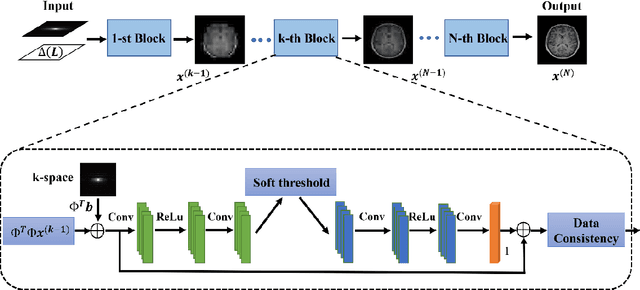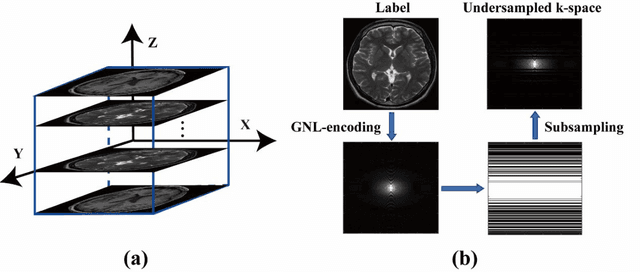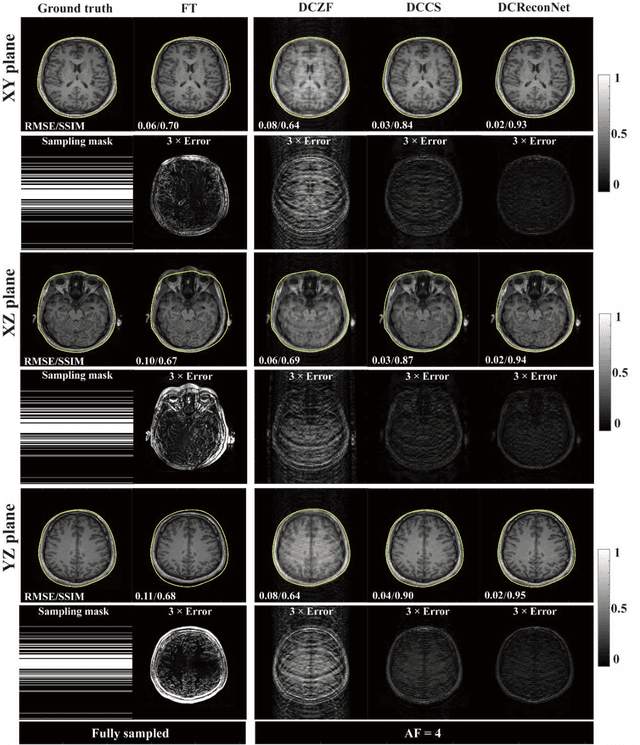Distortion-Corrected Image Reconstruction with Deep Learning on an MRI-Linac
Paper and Code
May 23, 2022



Magnetic resonance imaging (MRI) is increasingly utilized for image-guided radiotherapy due to its outstanding soft-tissue contrast and lack of ionizing radiation. However, geometric distortions caused by gradient nonlinearity (GNL) limit anatomical accuracy, potentially compromising the quality of tumour treatments. In addition, slow MR acquisition and reconstruction limit the potential for real-time image guidance. Here, we demonstrate a deep learning-based method that rapidly reconstructs distortion-corrected images from raw k-space data for real-time MR-guided radiotherapy applications. We leverage recent advances in interpretable unrolling networks to develop a Distortion-Corrected Reconstruction Network (DCReconNet) that applies convolutional neural networks (CNNs) to learn effective regularizations and nonuniform fast Fourier transforms for GNL-encoding. DCReconNet was trained on a public MR brain dataset from eleven healthy volunteers for fully sampled and accelerated techniques including parallel imaging (PI) and compressed sensing (CS). The performance of DCReconNet was tested on phantom and volunteer brain data acquired on a 1.0T MRI-Linac. The DCReconNet, CS- and PI-based reconstructed image quality was measured by structural similarity (SSIM) and root-mean-squared error (RMSE) for numerical comparisons. The computation time for each method was also reported. Phantom and volunteer results demonstrated that DCReconNet better preserves image structure when compared to CS- and PI-based reconstruction methods. DCReconNet resulted in highest SSIM (0.95 median value) and lowest RMSE (<0.04) on simulated brain images with four times acceleration. DCReconNet is over 100-times faster than iterative, regularized reconstruction methods. DCReconNet provides fast and geometrically accurate image reconstruction and has potential for real-time MRI-guided radiotherapy applications.
 Add to Chrome
Add to Chrome Add to Firefox
Add to Firefox Add to Edge
Add to Edge